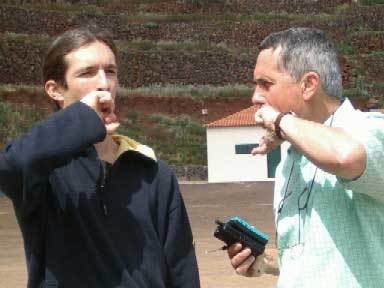Whistled languages – like ‘local cellular phones’ (study)
 “Whistled languages are a valuable heritage of human culture.” – explained a 2004 paper : ‘Bioacoustics of human whistled languages: an alternative approach to the cognitive processes of language’ (in : An. Acad. Bras. Ciênc. vol.76 no.2, June 2004).
“Whistled languages are a valuable heritage of human culture.” – explained a 2004 paper : ‘Bioacoustics of human whistled languages: an alternative approach to the cognitive processes of language’ (in : An. Acad. Bras. Ciênc. vol.76 no.2, June 2004).
It was authored by Dr. Julien Meyer of the Laboratoire de Dynamique du Langage (DDL)-CNRS, Institut des Sciences de l’Homme (ISH), Lyon, France, and described a survey about a new multidisciplinary approach :
“Whistled languages can be regarded as a transposition of a given local language into a repertoire of whistles.“
The survey concluded that :
“ . . . whistled languages are products of human intelligence and not just curiosities or ‘surrogates’ in the pejorative sense. They show a widespread distribution across cultures and have obviously developed quite independently of each other, but mostly related to a particular local environment. They are quite clearly defined and represent an original adaptation of the spoken language, like a ‘local cellular phone’ for the needs of isolated human groups.”
Also do not miss : Les langues sifflées – from the Association de recherche Le Monde Siffle (The World Whistles Research Association) – which hosts audio examples from Mexico, Greece, Turkey, and of course the Canaries – home of ‘Le Silbo’ as pictured above.

Marc Abrahams's Blog
- Marc Abrahams's profile
- 14 followers



